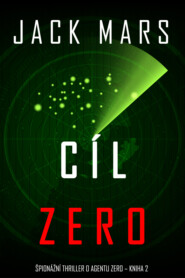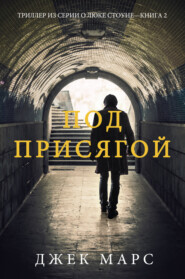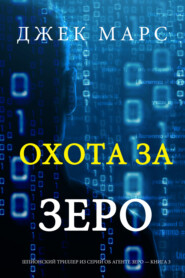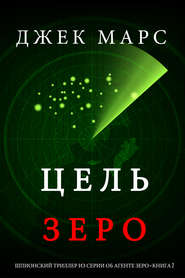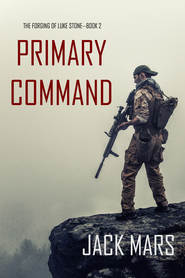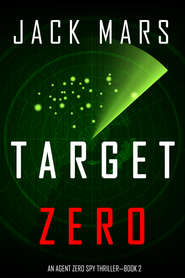По всем вопросам обращайтесь на: info@litportal.ru
(©) 2003-2025.
✖
Primary Target
Автор
Год написания книги
2018
Настройки чтения
Размер шрифта
Высота строк
Поля
Luke nodded. “Understood.”
Don stopped. He turned to face Luke. His hard eyes softened a touch. It was like he was Luke’s dad—the father he never had. Don was just a big, gray-haired, broad-chested, face-like-a-granite-cliff dad.
“You’re going to do fine, son. You’ve held command positions before. You’ve been in war zones before. You’ve been on difficult missions before, impossible missions. This isn’t like that. This one’s got a glass jaw, okay? Big Daddy Cronin is going to be running this operation on the ground. He’s got your back and he’s going to make sure you have the people you need in the air above you, and one step behind you.”
Luke was glad to hear that. Bill Cronin was a CIA Special Agent. He had been around the block a few times, had a lot of Middle East experience. Luke had served under him twice before—once while on loan from Delta Force to the CIA, and once during a joint special op.
Don went on. “I fully expect you guys to walk in there and for Parr to drop his weapon and throw his hands in the air. He’ll be relieved you’re not Al Qaeda. We need an early win to show the congressmen we mean business, so I padded your comeback schedule with an easy knockout. But don’t tell the others that. They think this is the most serious thing ever.”
Luke smiled and shook his head. “Okay, Dad.”
“I’d ruffle your hair, but you’re too old,” Don said.
Up ahead was a small waiting area for their gate. Three rows of five seats each were clustered in front of a desk, and behind the desk, the door to the tarmac. The desk was abandoned, and no one sat in the chairs. This was an empty area of the terminal.
Through the large windows, Luke could see a small blue State Department jet plane parked and waiting outside. A rollaway staircase led up to the open cabin door of the plane.
A group of three people milled around at the gate. Two of them were Trudy Wellington and Mark Swann. Trudy was tiny, and looked every inch of it. Swann was tall and thin, but was positively dwarfed by the third member of their party, a black guy in jeans and a leather jacket. The black guy stood by himself, a little bit away from Trudy and Swann. He had a green rucksack on the floor at his feet.
“That the guy?” Luke said. “Newsam?”
Don nodded. “That’s the guy.
Luke soaked him in as they approached. He looked to be six foot, five inches tall. His shoulders were broad, as was his chest. Beneath his leather jacket he wore a white T-shirt that clung to his massive frame. It looked like someone had painted it on there. His arms were covered by his jacket, but his fists were huge. He wore yellow work boots on his big feet. He looked like a cartoon rendering of a superhero.
Except for his face—it was as arrogant and as young as that of any kid in high school. There wasn’t a line on it.
“This guy has seen combat before?” Luke said.
Don nodded again. “Oh yeah.”
“Okay. You’re the boss.”
“Yes I am.”
They reached the group. The three of them turned. Trudy’s and Swann’s eyes were focused on Don, their boss. The newcomer, Newsam, stared at Luke.
“Thanks for coming out, everyone. Trudy and Mark, you’ve had the opportunity to meet Luke Stone, your commander on this trip. Luke was one of the best special operators I had the pleasure to serve with in the United States Army. Luke, this is Ed Newsam, who I didn’t serve with, but who I’ve heard spectacular things about.”
The two men shook hands. Luke looked into the eyes of the larger man. Newsam didn’t do anything overt—he didn’t, for example, try to crush Luke’s hand in his own. But his eyes said it all: You don’t command me.
Luke begged to differ. But this wasn’t the time or the place to worry about it. If they were going to work together, though, especially in a combat zone, the time would almost certainly come.
Don said a few words of encouragement to send the group off. But Luke wasn’t listening anymore. He just watched those hard young eyes, as they watched him.
CHAPTER NINE
11:15 p.m. Central European Summer Time (5:15 p.m. Eastern Daylight Time)
Institut Le Rosey
Rolle, Switzerland
It was the most famous school in the world.
Well, it was the most expensive, anyway.
But really, it was just very boring, and she didn’t want to be here. Her mom and dad had sent her here for a year of “finishing” before she went to college. And it had been the dreariest, loneliest year of her life. Maybe things would get better now that it was almost over. She was accepted to Yale for the fall.
Of course she was. Her father was one of Yale’s most well-known alumni, so why wouldn’t they accept her? She was Elizabeth Barrett, younger daughter of David P. Barrett, the current President of the United States.
In fact, she was finishing up on the telephone with her dad right now.
“Well, sweetheart, are there any positives that you can take away from this year?”
That was her father, always talking about “positives.” Was it even a real word? He said words and phrases like that all the time—there were always positives, and takeaways, and we were always moving forward, and climbing the ladder, and building something great. She had begun to suspect that he wasn’t nearly as optimistic as he talked. The whole act was a fake, a fraud. He just said these things because he knew that in his life, there was always someone listening.
She hated that part of it. She hated the security detail from the Secret Service that hovered nearby twenty-four hours a day. She liked some of the agents themselves, but she hated the fact of it, that it was necessary, that her life was stilted and thwarted at every turn because of it. They were listening to this phone call, of course, and they were never far away—a man stood out in the hall all night while she slept.
“I don’t know, Dad,” she said. “I just don’t know. I’ll be glad to get out of here.”
“Well, you got to go skiing in the Swiss Alps, right? You met people from all over the world.”
“I liked our Colorado trips better when I was a kid,” she said. “And the people I met? Yeah, great. Kids from Russia whose dads are the gangsters that stole all the industries when the Soviet Union collapsed. Kids from Saudi Arabia and Dubai whose dads are all princes or whatever. Is everybody in Saudi Arabia a prince? I think that’s the big takeaway, Dad. Everybody in Saudi Arabia belongs to the royal family.”
Her dad the President laughed. It made her smile. She hadn’t heard that from him in a long, long while. And it made her think about how things used to be, back when her dad worked in the family oil business and co-owned a pro football team. He had been a fun dad, once upon a time.
When they used to have family barbecues, he would wear a chef’s apron that said World’s Funnest Dad on it. That seemed like a long time ago now.
“Well, honey,” he said, “I’m pretty sure not everybody in Saudi Arabia is in the royal family.”
“I know,” she said. “Some people are servants and slaves.”
“Elizabeth!” he said, but he wasn’t angry. He was having fun with her. She was always the one to say the outrageous things, even when she was young.
“The truth hurts, Dad.”
“Elizabeth? That’s very funny. But I’ve got to run. Do this for me, will you? You’ve got just a week left to go there. Try to make the best of it. Take advantage of the opportunities presented, and do something that excites you, okay?”
“I don’t know what that would be,” she said, except now she was lying to him. “But I’ll do my best.”
“Good. You’re beautiful, hon. Your mom and I love you. Grandpa and Grandma send their love. And call your sister, will you?”
“Okay,” Elizabeth said. “I love you too, Dad.”
She hung up the telephone. In her mind, she imagined all the people who were hanging up at the same time. Her dad certainly, probably in the Oval Office. But also Secret Service people listening on other phones in the Oval Office—two or three of them, hanging up as one. Also, people sitting at computer screens in the CIA building, or the FBI headquarters. Also, her personal bodyguard standing out in the hall, with the wire going to his ear. Was he on the phone call? She bet he was.
Also, the Russian and Chinese spy agencies. You knew they were listening. And the billionaire Russian gangsters who sent their uncouth lout children to this expensive school. Were they listening? Probably.
Don stopped. He turned to face Luke. His hard eyes softened a touch. It was like he was Luke’s dad—the father he never had. Don was just a big, gray-haired, broad-chested, face-like-a-granite-cliff dad.
“You’re going to do fine, son. You’ve held command positions before. You’ve been in war zones before. You’ve been on difficult missions before, impossible missions. This isn’t like that. This one’s got a glass jaw, okay? Big Daddy Cronin is going to be running this operation on the ground. He’s got your back and he’s going to make sure you have the people you need in the air above you, and one step behind you.”
Luke was glad to hear that. Bill Cronin was a CIA Special Agent. He had been around the block a few times, had a lot of Middle East experience. Luke had served under him twice before—once while on loan from Delta Force to the CIA, and once during a joint special op.
Don went on. “I fully expect you guys to walk in there and for Parr to drop his weapon and throw his hands in the air. He’ll be relieved you’re not Al Qaeda. We need an early win to show the congressmen we mean business, so I padded your comeback schedule with an easy knockout. But don’t tell the others that. They think this is the most serious thing ever.”
Luke smiled and shook his head. “Okay, Dad.”
“I’d ruffle your hair, but you’re too old,” Don said.
Up ahead was a small waiting area for their gate. Three rows of five seats each were clustered in front of a desk, and behind the desk, the door to the tarmac. The desk was abandoned, and no one sat in the chairs. This was an empty area of the terminal.
Through the large windows, Luke could see a small blue State Department jet plane parked and waiting outside. A rollaway staircase led up to the open cabin door of the plane.
A group of three people milled around at the gate. Two of them were Trudy Wellington and Mark Swann. Trudy was tiny, and looked every inch of it. Swann was tall and thin, but was positively dwarfed by the third member of their party, a black guy in jeans and a leather jacket. The black guy stood by himself, a little bit away from Trudy and Swann. He had a green rucksack on the floor at his feet.
“That the guy?” Luke said. “Newsam?”
Don nodded. “That’s the guy.
Luke soaked him in as they approached. He looked to be six foot, five inches tall. His shoulders were broad, as was his chest. Beneath his leather jacket he wore a white T-shirt that clung to his massive frame. It looked like someone had painted it on there. His arms were covered by his jacket, but his fists were huge. He wore yellow work boots on his big feet. He looked like a cartoon rendering of a superhero.
Except for his face—it was as arrogant and as young as that of any kid in high school. There wasn’t a line on it.
“This guy has seen combat before?” Luke said.
Don nodded again. “Oh yeah.”
“Okay. You’re the boss.”
“Yes I am.”
They reached the group. The three of them turned. Trudy’s and Swann’s eyes were focused on Don, their boss. The newcomer, Newsam, stared at Luke.
“Thanks for coming out, everyone. Trudy and Mark, you’ve had the opportunity to meet Luke Stone, your commander on this trip. Luke was one of the best special operators I had the pleasure to serve with in the United States Army. Luke, this is Ed Newsam, who I didn’t serve with, but who I’ve heard spectacular things about.”
The two men shook hands. Luke looked into the eyes of the larger man. Newsam didn’t do anything overt—he didn’t, for example, try to crush Luke’s hand in his own. But his eyes said it all: You don’t command me.
Luke begged to differ. But this wasn’t the time or the place to worry about it. If they were going to work together, though, especially in a combat zone, the time would almost certainly come.
Don said a few words of encouragement to send the group off. But Luke wasn’t listening anymore. He just watched those hard young eyes, as they watched him.
CHAPTER NINE
11:15 p.m. Central European Summer Time (5:15 p.m. Eastern Daylight Time)
Institut Le Rosey
Rolle, Switzerland
It was the most famous school in the world.
Well, it was the most expensive, anyway.
But really, it was just very boring, and she didn’t want to be here. Her mom and dad had sent her here for a year of “finishing” before she went to college. And it had been the dreariest, loneliest year of her life. Maybe things would get better now that it was almost over. She was accepted to Yale for the fall.
Of course she was. Her father was one of Yale’s most well-known alumni, so why wouldn’t they accept her? She was Elizabeth Barrett, younger daughter of David P. Barrett, the current President of the United States.
In fact, she was finishing up on the telephone with her dad right now.
“Well, sweetheart, are there any positives that you can take away from this year?”
That was her father, always talking about “positives.” Was it even a real word? He said words and phrases like that all the time—there were always positives, and takeaways, and we were always moving forward, and climbing the ladder, and building something great. She had begun to suspect that he wasn’t nearly as optimistic as he talked. The whole act was a fake, a fraud. He just said these things because he knew that in his life, there was always someone listening.
She hated that part of it. She hated the security detail from the Secret Service that hovered nearby twenty-four hours a day. She liked some of the agents themselves, but she hated the fact of it, that it was necessary, that her life was stilted and thwarted at every turn because of it. They were listening to this phone call, of course, and they were never far away—a man stood out in the hall all night while she slept.
“I don’t know, Dad,” she said. “I just don’t know. I’ll be glad to get out of here.”
“Well, you got to go skiing in the Swiss Alps, right? You met people from all over the world.”
“I liked our Colorado trips better when I was a kid,” she said. “And the people I met? Yeah, great. Kids from Russia whose dads are the gangsters that stole all the industries when the Soviet Union collapsed. Kids from Saudi Arabia and Dubai whose dads are all princes or whatever. Is everybody in Saudi Arabia a prince? I think that’s the big takeaway, Dad. Everybody in Saudi Arabia belongs to the royal family.”
Her dad the President laughed. It made her smile. She hadn’t heard that from him in a long, long while. And it made her think about how things used to be, back when her dad worked in the family oil business and co-owned a pro football team. He had been a fun dad, once upon a time.
When they used to have family barbecues, he would wear a chef’s apron that said World’s Funnest Dad on it. That seemed like a long time ago now.
“Well, honey,” he said, “I’m pretty sure not everybody in Saudi Arabia is in the royal family.”
“I know,” she said. “Some people are servants and slaves.”
“Elizabeth!” he said, but he wasn’t angry. He was having fun with her. She was always the one to say the outrageous things, even when she was young.
“The truth hurts, Dad.”
“Elizabeth? That’s very funny. But I’ve got to run. Do this for me, will you? You’ve got just a week left to go there. Try to make the best of it. Take advantage of the opportunities presented, and do something that excites you, okay?”
“I don’t know what that would be,” she said, except now she was lying to him. “But I’ll do my best.”
“Good. You’re beautiful, hon. Your mom and I love you. Grandpa and Grandma send their love. And call your sister, will you?”
“Okay,” Elizabeth said. “I love you too, Dad.”
She hung up the telephone. In her mind, she imagined all the people who were hanging up at the same time. Her dad certainly, probably in the Oval Office. But also Secret Service people listening on other phones in the Oval Office—two or three of them, hanging up as one. Also, people sitting at computer screens in the CIA building, or the FBI headquarters. Also, her personal bodyguard standing out in the hall, with the wire going to his ear. Was he on the phone call? She bet he was.
Also, the Russian and Chinese spy agencies. You knew they were listening. And the billionaire Russian gangsters who sent their uncouth lout children to this expensive school. Were they listening? Probably.






